Land management and utilization have been gradually and effectively implemented over the years, promoting production and business development and contributing to the socio -economic development of the country. However, reality also shows that waste and violations in the management and use of public land are still increasing, significantly affecting the Party and Government's efforts to practice thrift and combat waste.

The Land Law of 2024, effective from August 1, 2024, includes many new amendments and additions, among which are regulations on the management and use of public land by public service units and state-owned enterprises.
Waste and violations in land use.
The policies and laws of our Party and State regarding land clearly affirm that land belongs to the entire people, with the State acting as the representative owner and managing it uniformly. Over the years, to serve the socio-economic development of the country, many land areas have been allocated to public service units and state-owned enterprises to implement programs and projects. However, many localities, after reclaiming land and allocating it to units and enterprises for use or lease, have failed to utilize it, leading to waste or violations in land use.
Dr. Tran Cong Phan, a member of the 15th National Assembly, Standing Vice Chairman and Secretary General of the Vietnam Lawyers Association, commented: The observance of discipline and order in the management and use of public land, and the efficiency of its exploitation, are still low and have many shortcomings, significantly affecting the practice of saving and combating waste in the past period. According to the results of monitoring report No. 330/BC-ÐGS dated October 11, 2022, by the 15th National Assembly's specialized monitoring delegation, the Government Inspectorate reported that during the period 2016-2021, violations involving 63,200 hectares of land were detected nationwide, and recommendations were made to recover 31,287 hectares.
The reasons for the above situation are, first and foremost, that the units have not paid sufficient attention to and properly implemented the regulations of the Land Law, the Investment Law, and many other legal documents related to the prevention and control of waste and the use of public land. In particular, the management and use of land during and after the privatization of state-owned enterprises still have many shortcomings.
Specifically, before equitization, many cases did not have land use plans developed, or the plans developed and approved were inconsistent with the land and housing arrangement and land use planning; information related to land was not publicly and transparently disclosed. After equitization, land was used for purposes other than intended, left fallow, subject to disputes and encroachment; legal procedures were delayed; land allocation, leasing, and land use conversion were not conducted through auctions; and land use conversions were inconsistent with planning.
Experts and land management officials believe that the illegal transfer of public land continues to occur, despite numerous strict regulations in the law concerning the management and use of public assets, particularly those related to the management, exploitation, and use of public land. Notably, in recent years, through inspections and audits, authorities have discovered many areas of public land being illegally transferred, transforming public land into private land.
A typical example is the case of violations of land management regulations at the Saigon Beer-Alcohol-Beverage Corporation ( Sabeco ). Meanwhile, the situation of abandoned or misused public offices and land, causing waste, is quite common in many localities, especially in large cities with a lot of public land and state agencies and units located within their areas, such as Hanoi, Ho Chi Minh City, Hai Phong, Da Nang, Can Tho…
Alarmingly, some organizations and individuals have taken advantage of this situation to illegally encroach on public land for various purposes such as parking lots, material storage areas, and food and beverage businesses; many agency headquarters are not fully utilized and are being leased out indiscriminately for shops, restaurants, or other services.
Furthermore, land clearance work in many areas still faces difficulties and shortcomings; the handling of delayed projects is not decisive enough; and violations in land allocation are still common. Land users' awareness of complying with the law is still not serious, especially since some penalties for violations are not sufficiently deterrent.
Ensuring consistency in management
According to Deputy Director of Land Affairs (Ministry of Natural Resources and Environment) Le Van Binh, in addition to the achievements, the regulations in the 2013 Land Law are gradually revealing many limitations such as: Land use planning does not ensure consistency, comprehensiveness, systematic approach, and high quality, lacking a long-term vision; land resources have not been fully and sustainably exploited and utilized...
In response to the aforementioned situation, the 2024 Land Law, comprising 16 chapters and 260 articles, was enacted to perfect a comprehensive and unified system of land policies and laws, in line with the development of a socialist-oriented market economy.
In particular, the 2024 Land Law has clarified the responsibilities of state agencies in exercising the right to represent land ownership; decentralized authority coupled with control and supervision of implementation, ensuring unified management from the central to local levels; and added the principle of openness and transparency when valuing land…
The above contents are considered important prerequisites for improving the effectiveness of combating waste and violations in the use of public land; and at the same time, help competent authorities have a full legal basis to implement policies and laws on land management in general, and management in the use of public land in particular, in our country in the future.
Associate Professor, Dr. Le Hong Hanh (Vietnam Lawyers Association) shared that the 2024 Land Law, with many new amendments and additions, including the amendment and supplementation of regulations on the management and use of public land by public service units and state-owned enterprises in particular, will certainly contribute to improving the effectiveness and efficiency of land management and use, and combating waste and violations in the use of public land in this area.
However, the 2024 Land Law relates to public assets, alongside the 2017 Law on Management and Use of Public Assets. In the 2017 Law on Management and Use of Public Assets, public assets are defined to include many types of assets, including land. Therefore, state management agencies need to clarify the meaning of public land and public assets between the 2024 Land Law and the 2017 Law on Management and Use of Public Assets, as there are still some points of contention that need to be identified and addressed.
Dr. Nguyen Van Quyen, Chairman of the Vietnam Lawyers Association, expressed his wish that the National Assembly continue to strengthen supervision of issues related to the implementation of policies and laws on the management and handling of stalled projects and violations of land and investment laws, especially in public land areas; and that the Government and the Prime Minister direct ministries, sectors, and localities to promptly complete the review, statistics, and compilation of complete information, data, and lists of land-related violations, thereby developing solutions to address and rectify losses and waste in land management and use.
In particular, it is necessary to compile a comprehensive list of violations related to land management and use, as well as the handling and recovery of land, in order to quickly put land into use, maximize its effectiveness, prevent losses and waste, and contribute to economic development.
On the other hand, the Ministry of Natural Resources and Environment, other ministries, sectors, and localities continue to improve mechanisms, policies, and regulations related to land management and use, including proposing higher administrative penalties to deter violations in land management and use; strengthening land management, exploitation, and use; enhancing the role, responsibility, and awareness of land law compliance among a segment of officials and civil servants; promptly addressing shortcomings and limitations in land management, exploitation, and use, ensuring economical, efficient, and sustainable exploitation, and reducing losses and waste of state resources.
At the same time, strictly address the responsibilities of organizations and individuals that allow violations and irregularities to occur regarding land; those that are slow to implement inspection recommendations; and those that fail to promptly recover state capital and assets.
Source



![[Photo] Prime Minister Pham Minh Chinh presides over a meeting on private sector economic development.](/_next/image?url=https%3A%2F%2Fvphoto.vietnam.vn%2Fthumb%2F1200x675%2Fvietnam%2Fresource%2FIMAGE%2F2025%2F12%2F20%2F1766237501876_thiet-ke-chua-co-ten-40-png.webp&w=3840&q=75)








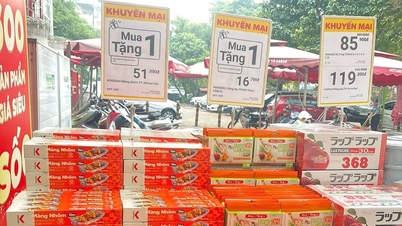

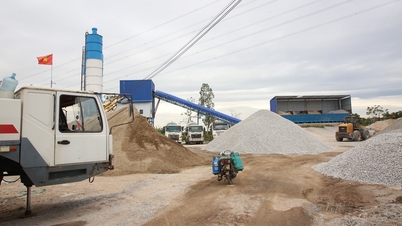
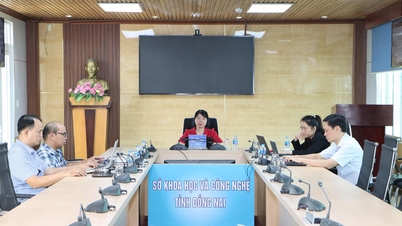





























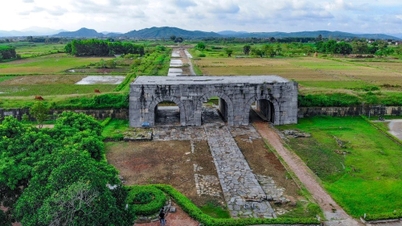



























































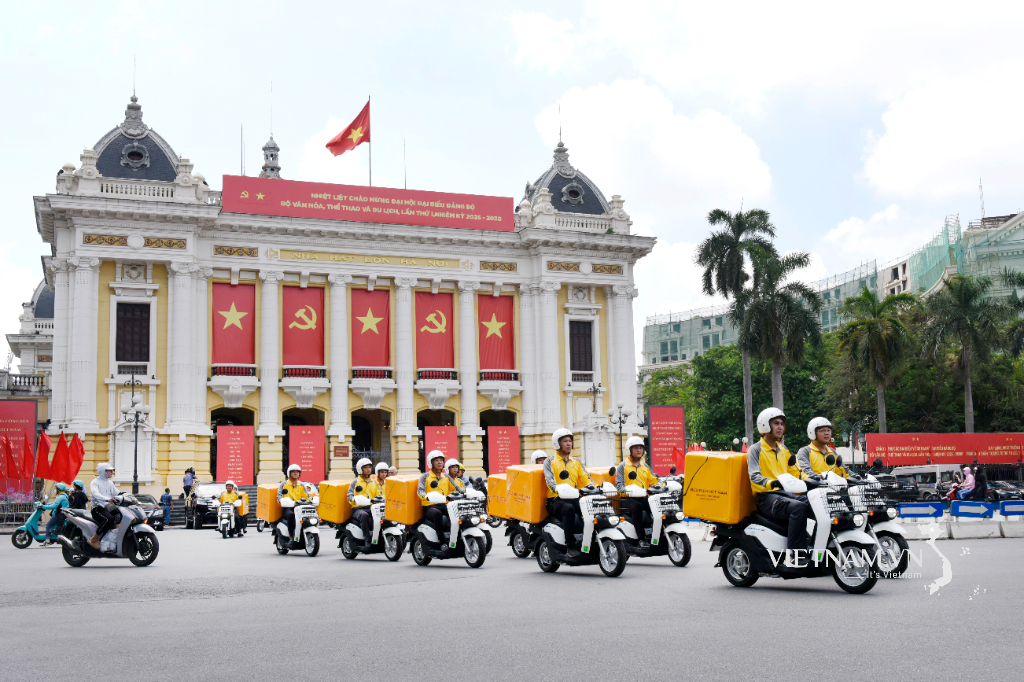



Comment (0)